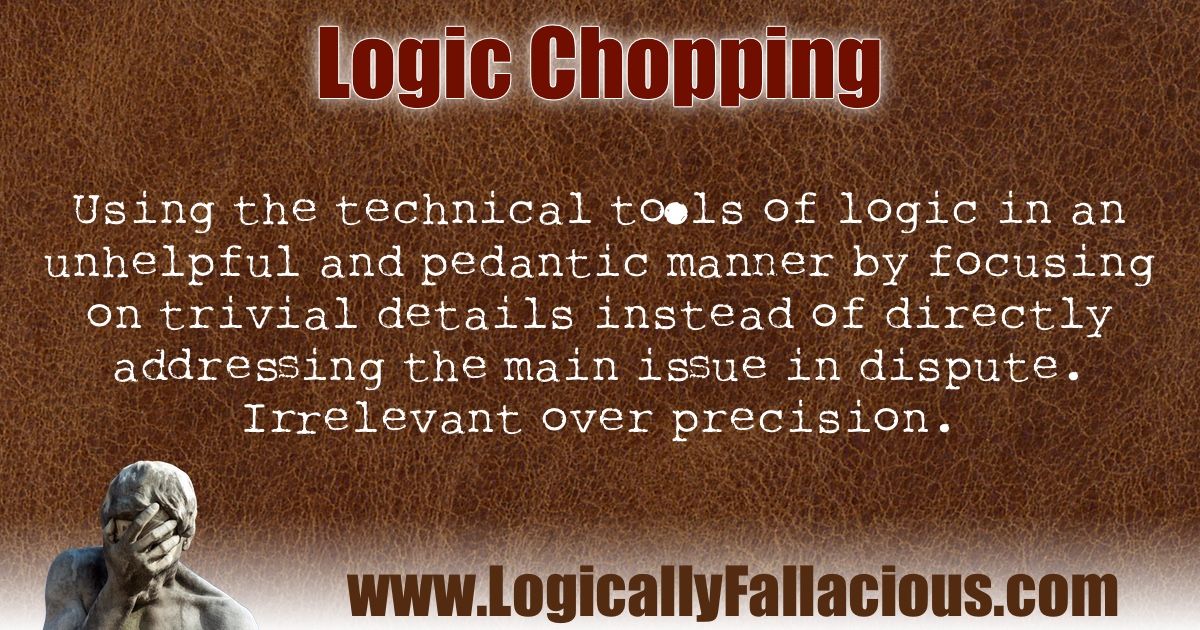(also known as: quibbling, nit-picking, smokescreen, splitting-hairs, trivial objections)
Description: Using the technical tools of logic in an unhelpful and pedantic manner by focusing on trivial details instead of directly addressing the main issue in dispute. Irrelevant over precision.
Pay close attention to this fallacy, because after reading this book, you may find yourself committing this fallacy more than any others, and certainly more often than you did before reading this book.
Logical Form:
A claim is made.
An objection is made regarding a trivial part of the claim, distracting from the main point.
Example #1:
John: Can you please help me push my car to the side of the road until the tow truck comes?
Paul: Why push it to the side of the road? Why not just leave it?
John: It is slowing down traffic unnecessarily where it is.
Paul: Many things slow down traffic—do you feel you need to do something about all them?
John: No, but this was my fault.
Paul: Was it really? Were you the direct cause of your car breaking down?
John: Are you going to help me move this damn car or not?!
Explanation: You can see here that Paul is avoiding the request for assistance by attempting to make a deep philosophical issue out of a simple request. While Paul may have some good points, not every situation in life calls for deep critical thought. This situation being one of them.
Example #2:
Service Tech: Your car could use some new tires.
Bart: You have a financial interest in selling me tires, why should I trust you?
Service Tech: You brought your car to me to have it checked, sir.
Bart: I brought my car to the shop where you work.
Service Tech: So should we forget about the new tires for now?
Bart: I never suggested that. Are you trying to use reverse psychology on me, so I will buy the tires?
Explanation: This kind of fallacy could easily be a result of someone with paranoid behavioral tendencies -- thinking the world is out to get him or her.
Exception: Of course, there is no clear line between situations that call for critical thought and those that call for reactionary obedience, but if you cross the line, hopefully, you are with people who care about you enough to tell you.
Tip: People don’t like to be made to feel inferior. You need to know when tact and restraint are more important than being right.
